
by Mark Silk, RNS | Mar 15, 2022 | Commentary, Headline News, Social Justice |

(RNS) — The middle of a war that is grabbing the world’s attention may not be the best time to reflect on climate change. But the latest report from the U.N.’s Intergovernmental Panel on Climate Change shows that one crisis is not taking a pause while we settle another.
The news from this sixth IPCC assessment, unsurprisingly, is not good.
As The New York Times summarized it, “The dangers of climate change are mounting so rapidly that they could soon overwhelm the ability of both nature and humanity to adapt, creating a harrowing future in which floods, fires and famine displace millions, species disappear and the planet is irreversibly damaged.”
Nowhere does the future appear more harrowing than for the inhabitants of small islands, from the Caribbean to the South Pacific, whom rising seas threaten to literally wipe off the map. But as imminent as the physical danger is, how the inhabitants reckon with what they are facing is often at odds with the scientific understanding.
In a chapter on small islands, the IPCC report to its credit recognizes that “material and non-material symbols that express collective meaning” are “often overlooked in adaptation policies and plans.”
As it happens, many of these communities are composed largely of Bible-believing Christians, and what they believe matters because “(e)xternally-driven adaptation efforts in rural small-island communities that exclude community priorities, ignore or undervalue IKLK (indigenous knowledge and local knowledge), and are based on secular western/global worldviews, are often less successful.”
In other words, it is important to know where the affected communities are coming from — not least, religiously.
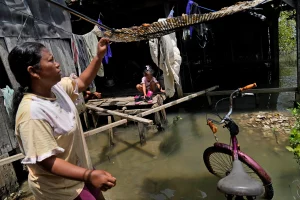
Take the outer Fijian island of Ono. When Amanda Bertana, a sociologist at Southern Connecticut State University, went there to study relocation plans, she found a devout Christian population that believes that rising sea levels are the result of God’s disapproval of their immoral behavior and, at the same time, that they won’t be flooded into oblivion.
Why not? Because in the ninth chapter of the Bible’s Book of Genesis, God promises Noah after the waters recede, “Never again will all life be destroyed by the waters of the flood.”
For Bertana, this rejection of the secular narrative of coastal degradation is “a form of emotional self-preservation” — one, to be sure, that undermines efforts to get them safely relocated. This comforting promise not to flood the Earth again has been widely embraced among sea-level-threatened islanders.
But University of Oxford geographer Hannah Fair, also working in the South Pacific, has found alternative climate-related interpretations of the Noah story.
Some Fijians see in Noah a model for disaster preparation. Others, in a less orthodox interpretation, regard Noah as a villain who used his wealth for self-protection and those who drowned as victims.
Meanwhile, on the Caribbean island of Trinidad, University of Texas anthropologist Brent Crosson found that the Afro-Christian denomination of Spiritual Baptists has adopted a biblical understanding of environmental destruction based on a (mis-)reading of Psalm 24.
That psalm begins, in the King James Version, “The Earth is the Lord’s.” But since the English creole spoken in Trinidad does not employ the possessive apostrophe-s, the Spiritual Baptists say, “The Earth is the Lord.”
This has led them to see the Earth as God’s body, suffering harm from human activity. That includes the activity of oil companies, which despite providing Trinidad with significant wealth nevertheless are considered vampires consuming the planet’s lifeblood.
Writing in a forthcoming collection of essays, “Climate Politics and the Power of Religion,” Crosson sees in this interpretation of Scripture an “ethics of injury” that “forms the basis not only for empathy but for new legal regimes that, despite many challenges in implementation, define the Earth as a person with rights.”
Those who track religion and climate change tend to divide the world into Pope Francis-type progressives and white evangelical deniers. But there are more environmental theologies in heaven and earth, dear reader, than are dreamt of in their philosophies.
(The views expressed in this opinion piece do not necessarily reflect those of Religion News Service.)
READ THIS STORY AT RELIGIONNEWS.COM
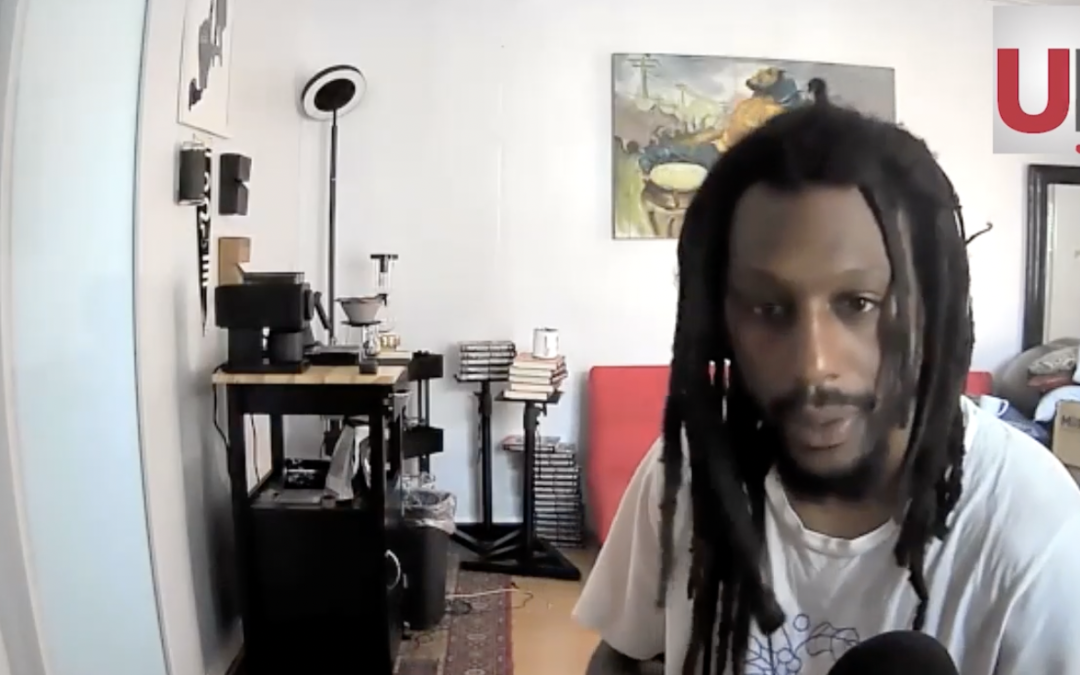
by Maina Mwaura, Urban Faith Contributing Writer | Mar 9, 2022 | Commentary, Headline News, Social Justice |
It is clear to see that brokenness pervades our world as we look at the news headlines. We encounter the same brokenness in our communities and households. But when we recognize our ability to impact the culture that surrounds us in the same way we are impacted by it. UrbanFaith sat down with artist, entrepreneur, and now author PROPAGANDA to discuss his new book Terraform: Building a Better World. Full interview is above, more information on the book is below.
In this deep, challenging, and thoughtful book, Propaganda looks at the ways in which our world is broken. Using the metaphor of terraforming—creating a livable world out of an inhospitable one—he shows how we can begin to reshape our homes, friendships, communities, and politics. In this transformative time—when we are redefining what a truly just and equitable world looks like, and reflecting on the work that needs to be done both in our spiritual and secular lives—Propaganda rallies readers to create that just world. He sheds light on how nefarious origin stories have skewed our views of ourselves and others and allowed gross injustices, and demonstrates how great storytelling and excellent art can create and shape new perspectives of the world and make all of us better.
by Omar Suleiman, RNS | Feb 8, 2022 | Commentary, Headline News, Social Justice |
(RNS) — Over the past week, much of the world was gripped by the heartbreaking story of Rayan, a 5-year-old boy who had plunged 104 feet into a well in Morocco. For five days thousands of people went to Tamorot in northern Morocco to help and pray, while around the world hundreds of millions followed closely. On Saturday evening (Feb. 5), hopes rose as he was pulled out of the deep shaft, but the jubilation was short-lived as the news broke within minutes that he had passed away.
Images of Rayan, his grieving mother and the heroic rescue effort united much of the world around what practically no one could find disagreeable: the hope that an innocent child caught in devastating circumstances could be reunited in health and safety with his worried parents.
For many of us as Rayan departed this world, we still pray for that reunion in the next life, and are moved to contribute to his grieving family in any way that we can.
For readers of Scripture, Rayan’s time in the well brought to mind the story of Joseph, the son of Jacob (peace be upon them), in the Quran, similar to that of the Bible. In the Quran, however, Joseph’s time in the well is a focal point of an entire chapter that offers comfort to those facing a trial.
Rayan, certainly, was not thrown into the Moroccan well by envious brothers, as Joseph was. Poor infrastructure seems to have been the main reason for his death, and the fact that no one was to blame made it easy to gather everyone in sympathy.
But I can’t help but wonder while watching this unfold how differently the story of Rayan would be told, or if it would be told at all, had he been a child stuck in a crater caused by an airstrike from a military drone. Or if he was a refugee who had slipped to his death in a camp.
Figures are not for a blameless child to die due to unnecessary war. Some 1,600 children died or were maimed in Afghanistan every year for two decades, according to Save the Children, which also estimates that 25 children die or are injured each day in conflicts around the world.
Cruelty to a child is one of the few things that can still elicit a pure human reaction from most of us. It’s why the mother of Emmett Till wanted to leave the casket open after her son’s brutal murder. In her own words, “I wanted the world to see what they did to my boy.” By doing so, she sparked the civil rights movement.
It’s why the image of baby Alan Kurdi, a Syrian refugee who washed ashore at a Turkish resort, shocked the world in a way that statistics never could. It’s why the image of over 60 Palestinian children on the cover of The New York Times did more to humanize the plight of the Palestinian people than almost all the coverage of the bombardment of Gaza combined. And it’s why the image of young Jakelin Caal, who died trying to cross the border into the United States, shook so many of us to our core.
We despise the unjust death of children, but when children die in war we feel complicit in that injustice, either through our participation in harmful policies or silence about the consequences. Many of the powers directly responsible for children’s deaths are aware of our disgust and will try to thwart coverage or sympathy that may lead to direct challenges of their use of force.
We’re told to sympathize with the child who resembles Joseph. It’s far harder for us to see ourselves as the brothers who threw him into the well.
While the brothers of Joseph were driven by envy, we’re driven by greed or apathy. The reason doesn’t matter to the child. Our repentance is to do what we can for that child, and the other children who need our help.
Rayan was a beautiful, innocent child who brought out the best of his countrymen, and the purest of sentiments from around the world. How do we then reckon with the harm of so many unholy wars and man-made tragedies in which so many beautiful children die in ugly ways? What is the work we need to do so that they may live in dignity and calm?
(The views expressed in this opinion piece do not necessarily reflect those of Religion News Service.)
by Mwikali Munyao | Jan 24, 2022 | Headline News, Prayers & Devotionals, Social Justice |
Deuteronomy 16:18-20
18 “Appoint judges and officials for yourselves from each of your tribes in all the towns the Lord your God is giving you. They must judge the people fairly.
19 You must never twist justice or show partiality. Never accept a bribe, for bribes blind the eyes of the wise and corrupt the decisions of the godly.
20 Let true justice prevail, so you may live and occupy the land that the Lord your God is giving you.
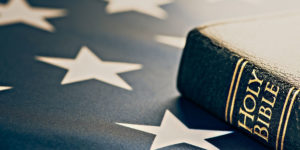 In a world where everyone has an opinion of what justice is, and what is wrong seems to be appealing and receiving the most media attention, as believers, it is very encouraging to know God’s pure intention and desire for what true justice is.
In a world where everyone has an opinion of what justice is, and what is wrong seems to be appealing and receiving the most media attention, as believers, it is very encouraging to know God’s pure intention and desire for what true justice is.
In Deuteronomy 16: 18-20 Living Bible Translation there are specific takeaways that are listed to ensure Justice prevails and there is success in the land
- Appointing judges and administrative officials to administer justice in every part of the land
- Not twisting justice to benefit the rich
- Never accepting bribes, because bribes blind the eyes of the wisest and corrupt their decisions
It is important to understand that God cares about what happens to the land we live in. It is a form of great stewardship, when we are able to appoint officials who will govern with wisdom and counsel.
True Justice in God’s eyes, does not involve buying favors, classism or oppression, as we often see in various governments in our current world. He desires for fruitfulness and peace, while those in power, serve in diligence, grace, and integrity for the good of the people.
This week, pray for elected officials. Let us ask God to touch the hearts and minds of those who have the honor to serve at any capacity in our current government. Let us pray for a heart of conviction, wisdom and the desire to do what is right for the sake of the people.
We have a duty as believers to pray and when the opportunity arises, appoint and elect the right officials to rule in our land so that we experience the blessings of peace and prosperity. We cannot give up hope, regardless of what is happening, or ignore the responsibility we have in picking right leaders. God cares for us, His love is unwavering and this year will not be any different. He will guide us to make the right decisions to elect leaders who will move our nation forward. Peace and stability is a great blessing to have, and pursuing pure justice will pave the way for that to happen.
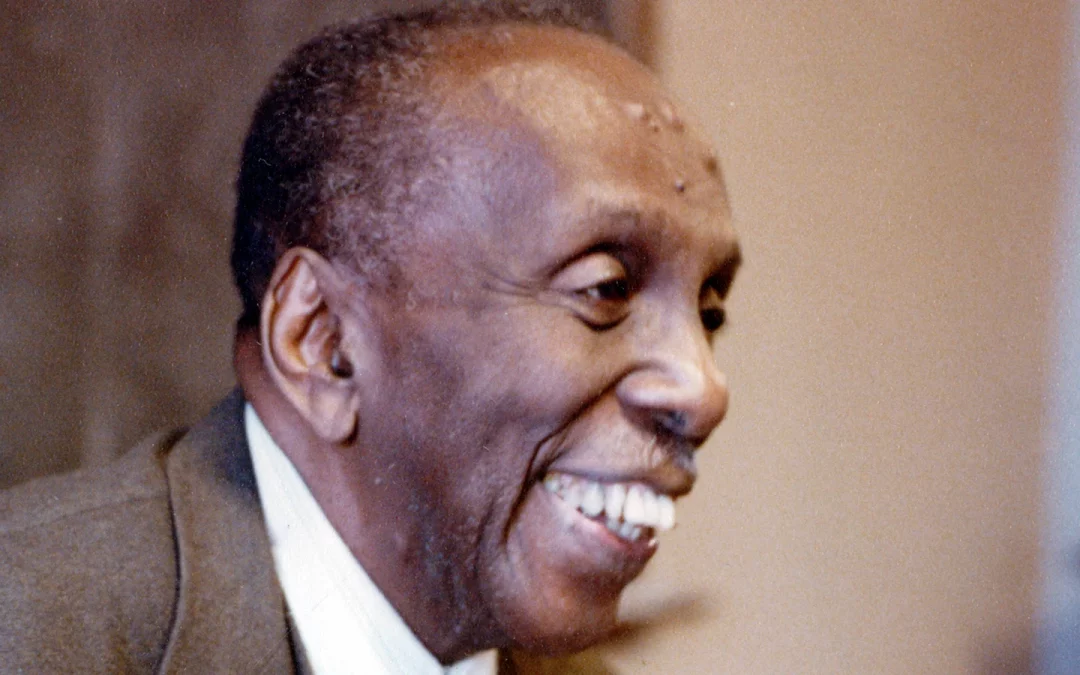
by Adelle M. Banks, RNS | Jan 13, 2022 | Headline News, Social Justice |
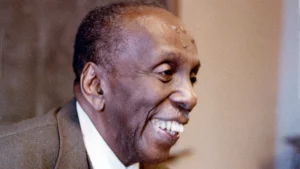
Howard Thurman was a theologian and mystic who taught at both Howard University and Boston University. Photo courtesy of Emory University
‘(RNS) — Hartford International University for Religion and Peace has launched its new Howard Thurman Center for Justice and Transformational Ministry, an expansion of its longtime Black Ministries Program, named for the 20th-century theologian and mystic.
Joel N. Lohr, president of the university that previously was known as Hartford Seminary, said the center fits into the school’s strategic plan that focuses on peace building.
“It was my hope that this would be a moment to grow, to envision a center that would do more to support students, justice and ministry,” he said at a Tuesday (Jan. 11) webinar that officially launched the center and was attended by alumni, as well as Thurman’s grandchildren.
The center, which is a $2 million project, is supported by a $1 million grant from the Lilly Endowment Inc. The grant will support a resource center, pay for a Black church scholar and assure that students will not be excluded if they cannot afford the coursework.
The HTC will be led by Bishop Benjamin Watts, who will also continue to lead the Black Ministries Program founded in 1982 by the late Christian Methodist Episcopal Senior Bishop Thomas Hoyt.
“The center’s North Star will be Thurman’s insistence on social justice and responsibility within a spiritual framework,” said Watts in an introductory video during the launch event.
In live comments, Watts spoke of plans to move beyond the center’s regional focus in its two-year certificate course and to become a national model of theological training for pastors and lay people. He said the center also wants to expand the training to include health, wellness and trauma education.
“Those of us of faith have to find ways to continually engage with other persons, and particularly our youth who seem to be falling away from our worship centers,” he said.
During a live interview, Watts asked the Rev. Walter Fluker, editor of “The Papers of Howard Washington Thurman,” to describe the center’s namesake, who died in 1981.
“Thurman, like great mystics — the Dalai Lama, Bishop Tutu — if you meet them, they’re always laughing, because they understand the deep, tragic sense of life and it’s only because of their deep sense of the tragic that they’re able to look at the world and laugh at the world,” said Fluker, a professor at Emory University’s Candler School of Theology. ”To meet Howard Thurman is to meet not a detached mystic unconcerned about the affairs of the world, but a very earthly human being.”
The launch event also featured video comments from the Rev. Andrew Young, a longtime civil rights activist who worked with the Rev. Martin Luther King Jr. and is an alumnus of the Connecticut university, and an interview with former Spelman College President Beverly Daniel Tatum, who earned a master’s in religious studies from the school.
READ THIS STORY AT RELIGIONNEWS.COM

by Samuel L. Perry, RNS | Jan 6, 2022 | Commentary, Headline News, Social Justice |
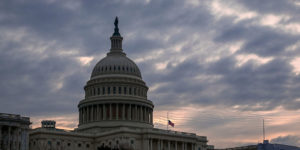 (RNS) — One year ago at the Capitol riot on Jan. 6, 2021, the world witnessed one way in which Christian nationalism imperils American democracy. We’ve all seen photos and footage of the mob violence perpetrated by Americans waving Christian flags, clad in Christian clothing, saying Christian prayers. As some increasingly isolated and radicalized religious conservatives react to their loss of power, the threat of their political violence is real. But it is not the only way Christian nationalism jeopardizes our democracy.
(RNS) — One year ago at the Capitol riot on Jan. 6, 2021, the world witnessed one way in which Christian nationalism imperils American democracy. We’ve all seen photos and footage of the mob violence perpetrated by Americans waving Christian flags, clad in Christian clothing, saying Christian prayers. As some increasingly isolated and radicalized religious conservatives react to their loss of power, the threat of their political violence is real. But it is not the only way Christian nationalism jeopardizes our democracy.
The fact is, Christian nationalist ideology — particularly when it is held by white Americans — is fundamentally anti-democratic because its goal isn’t “government of the people, by the people, and for the people.” Its goal is power. Specifically, power for “true Americans like us,” Christians in an almost ethnic sense, those who belong — the worthy. Stemming from this, the most salient threat white Christian nationalism poses to democracy is that it seeks to undermine the very foundation of democracy itself: voting.
We can see this connection long before the 2020 presidential election or recent efforts to restrict voter access throughout the country. As historian Anthea Butler recounts, at a 1980 conference Paul Weyrich, co-founder of the Moral Majority, spoke about electoral strategy to Christian right leaders including Tim LaHaye, Phyllis Schlafly, Pat Robertson, Jerry Falwell Sr. and then-presidential candidate Ronald Reagan.
Weyrich famously explained:
“Many of our Christians have what I call the goo-goo syndrome. Good government. They want everybody to vote. I don’t want everybody to vote. Elections are not won by a majority of people. They never have been from the beginning of our country and they are not now. As a matter of fact our leverage in the elections quite candidly goes up as the voting populace goes down.”
In Weyrich’s own words, the goal of these Christian right leaders wasn’t more Americans exercising their democratic rights. The goal is “leverage” and, with it, victory. Over the next few decades, Weyrich and other organizations he co-founded, like the American Legislative Exchange Council, tirelessly promoted legislation to restrict voter access, guided by the belief that voting must be controlled, lest the wrong sorts of people determine the outcome.
In a recent study I conducted with co-authors Andrew Whitehead and Josh Grubbs, we documented this same strong connection between Christian nationalist ideology and wanting to limit voter access. We surveyed Americans just before the November 2020 elections and thus before Donald Trump’s “Big Lie” began to dominate the narrative on the right. We use a scale to measure Christian nationalism that includes questions about the extent to which Americans think the government should declare the U.S. a Christian nation, that America’s success is part of God’s plan and other such views.
Even after we accounted for political partisanship, ideological conservatism and a host of other religious and sociodemographic characteristics, Christian nationalist ideology was the leading predictor that Americans felt we already make it “too easy to vote.”
You may ask, “Who exactly is voting too easily?” The obvious answer is the bogeyman trope of fraudulent voters — those pets, dead people and undocumented immigrants Trump warned about in spring 2020. This myth of widespread voter fraud is decades old and has been thoroughly debunked numerous times. Yet, unsurprisingly, we also found that Christian nationalism is the leading predictor that Americans believe “voter fraud in presidential elections is getting rampant these days.” And it bears repeating: Americans who affirm Christian nationalism already felt this way before the 2020 presidential election.
But other evidence suggests Christian nationalism doesn’t just hope to exclude fraudulent voters. For adults who believe America should be a “Christian nation,” their understanding of who should vote is even more narrow. For example, we asked Americans whether they would support a policy requiring persons to pass a basic civics test in order to vote or a law that would disenfranchise certain criminal offenders for life. These questions hark back to arbitrary Jim Crow restrictions white Southerners used before the Voting Rights Act of 1965. Once again, Christian nationalism is the leading predictor that Americans would prefer both restrictions.
But why?
Part of the reason for this is, as Weyrich explained in 1980, electoral leverage. Americans who subscribe to Christian nationalism likely assume persons excluded by civics tests and lifetime felon disenfranchisement (younger Americans and ex-convicts who are disproportionately Black) would be political threats, not allies.
Yet another reason also involves how white Christian nationalists view voting in general. In data we collected in August 2021, we asked Americans to indicate whether they felt voting was a right or a privilege. Though constitutional language repeatedly states voting is a right for citizens, Americans still debate the issue. As I show in Figure 1, the more Americans embrace Christian nationalism, the more likely they are to view voting as a privilege (something that can be extended or taken away) rather than a right (something that shall not be infringed). Indeed, at the extreme end of Christian nationalism, the majority hold this view.
Other evidence beyond voter access suggests Christian nationalism inclines Americans to favor institutional arrangements that preserve their political power. In the same October 2020 survey we used for the earlier study, we found that the more white Americans affirmed Christian nationalist ideology, the more likely they were to reject the popular vote as a means of selecting the president, to favor the Electoral College and to disagree that gerrymandering needed to be addressed to ensure fairer congressional elections (see Figure 2). Why? Almost certainly because these arrangements currently give white, rural, conservative Americans an electoral advantage even when they are numerical minorities. Again, the goal is power, not fairness or democracy.
As scholars of right-wing political movements point out, democracy is gradually eroded under some ideological covering, one that stokes populist anxiety with menacing tropes about cultural decline and justifies anti-democratic tactics to “save” or “restore” the nation — to make the nation great again. In the United States, white Christian nationalism is that ideological covering. In the minds of white Americans who believe America should be for “Christians like us,” increasing ethnic and religious diversity is a threat that must be defeated for God to “shed his grace on thee.”
Moreover, Americans who subscribe to Christian nationalism already thought voter fraud was rampant before November 2020. Today, in the aftermath of Trump’s “Big Lie” about a stolen election, which is still believed by over 80% of the most ardent believers in Christian nationalism, electoral integrity is viewed as hopelessly compromised. Thus, they see restricting voter access to those who prove worthy, and maintaining institutional advantages provided by the Electoral College and gerrymandering, as necessary strategies for preserving power and preventing what they see as their own imminent persecution under a Democratic administration.
The threat of Christian nationalist violence like what we saw on Jan. 6 is real. Yet because such threats are so obvious and shocking, and the role of Christian nationalism in them is so blatant, they make gaslighting about them more challenging. (Though Republican leaders are certainly trying, just the same.) In contrast, the threat of Christian nationalism as an ideological covering for voter suppression is perhaps more destructive because its influence is more subtle and its effects (electoral outcomes) are more consequential. Demagogues like Trump will no longer need to mobilize Christian nationalist violence after an electoral loss once they’ve ensured they’ll never lose in the first place.
(Samuel L. Perry is an associate professor of sociology at the University of Oklahoma. He is the author of two books on Christian nationalism, including the award-winning “Taking America Back for God: Christian Nationalism in the United States” (with Andrew L. Whitehead) and the forthcoming “The Flag and the Cross: White Christian Nationalism and the Threat to American Democracy” (with Philip Gorski). The views expressed in this commentary do not necessarily reflect those of Religion News Service.)
Ahead of the Trend is a collaborative effort between Religion News Service and the Association of Religion Data Archives made possible through the support of the John Templeton Foundation. See other Ahead of the Trend articles here.





 In a world where everyone has an opinion of what justice is, and what is wrong seems to be appealing and receiving the most media attention, as believers, it is very encouraging to know God’s pure intention and desire for what true justice is.
In a world where everyone has an opinion of what justice is, and what is wrong seems to be appealing and receiving the most media attention, as believers, it is very encouraging to know God’s pure intention and desire for what true justice is.


 (RNS) — One year ago at the Capitol riot on Jan. 6, 2021, the world witnessed one way in which Christian nationalism imperils American democracy. We’ve all seen photos and footage of the mob violence perpetrated by Americans waving Christian flags, clad in Christian clothing, saying Christian prayers. As some increasingly isolated and radicalized religious conservatives react to their loss of power, the threat of their political violence is real. But it is not the only way Christian nationalism jeopardizes our democracy.
(RNS) — One year ago at the Capitol riot on Jan. 6, 2021, the world witnessed one way in which Christian nationalism imperils American democracy. We’ve all seen photos and footage of the mob violence perpetrated by Americans waving Christian flags, clad in Christian clothing, saying Christian prayers. As some increasingly isolated and radicalized religious conservatives react to their loss of power, the threat of their political violence is real. But it is not the only way Christian nationalism jeopardizes our democracy.